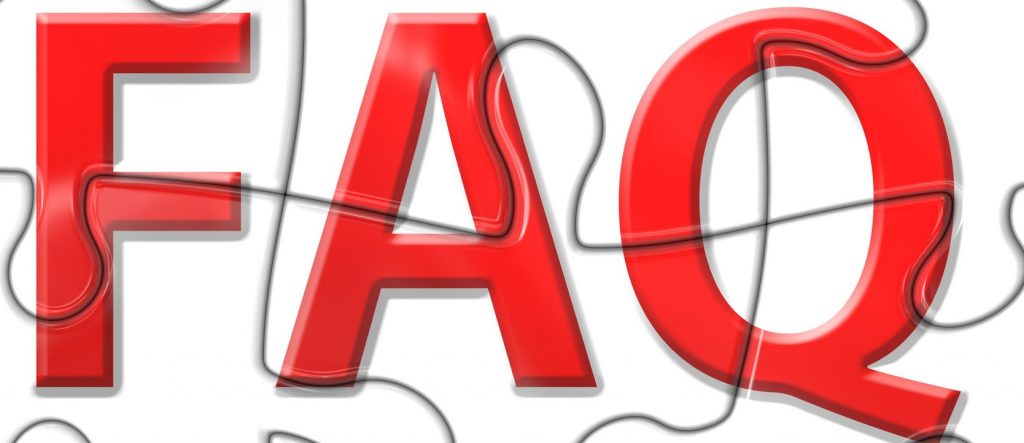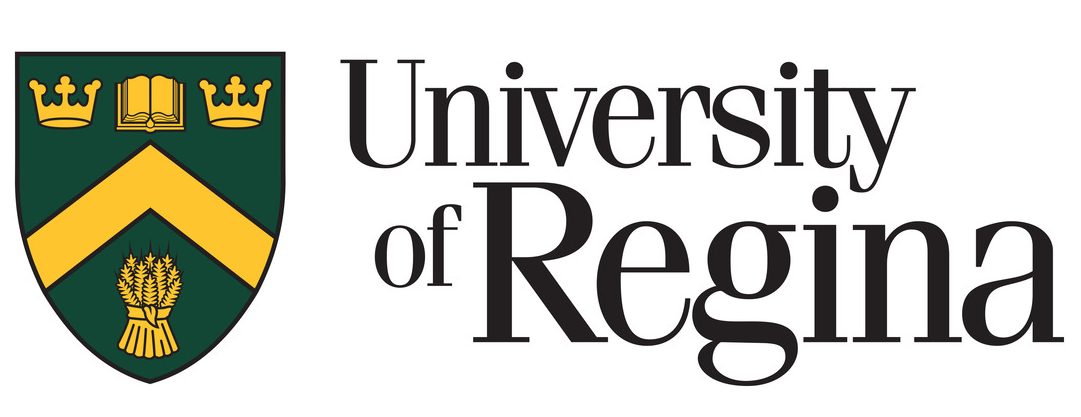
Here are some frequently asked questions on issues regarding academic misconduct.
What is academic integrity?
The University of Regina is committed to upholding and fostering the highest standards of academic integrity. The core values of academic integrity are honesty, trust, fairness, respect, and responsibility. These values are central to the development and dissemination of knowledge.
As described in the Student Code of Conduct and Right to Appeal in the Undergraduate Academic Calendar:
Academic integrity requires students to be honest and responsible in all
learning environments. Academic assignments exist to help students
learn; grades exist to show how fully this goal is attained. Therefore, all
work and all grades should result from a student’s own understanding
and effort. The principles of Academic Integrity include, but are not limited to
to:
- Completing your own work.
- Documenting your research and citing the works of others.
- Acting ethically and with integrity as you pursue your academic studies.
- Upholding the ethical or professional code of the profession for which you are preparing.
- Being accountable and taking responsibility for your actions.
- Learning from your mistakes.
What is academic misconduct?
According to the Student Code of Conduct and Right to Appeal: Academic Integrity, academic misconduct includes “acts which contravene the general principles of Academic Integrity.”
Common instances of academic misconduct include:
- Plagiarism
- Cheating on an exam, test, or assignment
- Fabricating references in an assignment
- Working jointly on an assignment with another student without the instructor’s prior permission
- Use of aid or resources (such as generative AI, e.g., ChatGPT) in an assignment unless specifically authorized by the course instructor
- Obtaining a paper from an essay service or another source
- Submitting the same work for credit without explicit authorization from the course instructor
For a more comprehensive list, see the Student Code of Conduct and Right to Appeal
What is my next step once I have been informed of a suspicion of academic misconduct?
Remember, this is only a suspicion. No decisions have been made yet. The Investigating Dean will invite you to a meeting to discuss your case. The purpose of the discussion is for the Investigating Dean to hear from you what may have happened. Note the date, time and place of the proposed meeting. If you are unable to make the proposed date/time, you must contact whoever sent you the email to reschedule. Do this ASAP.
I have been asked to attend a discussion with my Investigating Dean. How do I prepare for this discussion and what services/supports are available to me?
You should first familiarize yourself with the University’s Student Code of Conduct and Right to Appeal: Academic Misconduct policy. You may also contact the University of Regina Students’ Union’s Student Advocate for support.
What can I expect after a discussion with my Investigating Dean?
A decision letter will be sent to your University of Regina email.
What are the possible penalties and consequences of an Academic Misconduct finding?
Possible penalties that can be assigned for an act of academic misconduct by an Investigating Dean are listed in the Student Code of Conduct and Right to Appeal.
How does the Investigating Dean make their decision?
Based on the information available, they will apply what is called a “balance of probabilities” standard of proof as to whether academic misconduct occurred. This means that weighing all the information, it is determined that more likely than not misconduct occurred.
What happens if I do not agree with the Investigating Dean’s finding of Academic Misconduct or the penalty they assigned?
Students may appeal the Investigating Dean’s academic misconduct decision or the severity of the penalty they assigned for the academic misconduct finding to the Council Discipline Committee. Requests for a hearing must be submitted in writing and within 30 days of the date of imposition of the penalty to:
The University Secretary
University of Regina
Administration/Humanities Building, Room 509.1
Regina, SK S4S 0A2
Tel: 306-585-4956; Fax: 306-585-5255
E-mail: student.appeals@uregina.ca
What is the difference between an academic record and transcript?
An official transcript is a complete and detailed representation of a student’s academic record that includes program history, courses taken, grades earned, academic progress, honours and graduation information from the first day of your attendance at the university to the current date. An official transcript is issued and certified by the University Registrar’s Office and it has security features that verify its authenticity.
The academic record is a student’s internal record retained by the university that includes the information on the official transcript and additional information concerning a student’s academic performance such as disciplinary notations for academic misconduct. The academic record is also used for advising and tracking purposes.
An academic misconduct decision made by an Investigating Dean against the student is included in the student’s academic record. Only the penalty of a grade of “XF” for academic misconduct is recorded in the student’s transcript.
What if I believe that I have experienced prejudice, discrimination or harassment related to the suspicion of misconduct?
“The University of Regina is committed to a climate in which students, faculty and staff are provided with the best possible conditions for learning, living and working, including an environment that is dedicated to excellence, equity and mutual respect. The University of Regina realizes this vision by establishing employment and educational practices that respect the dignity of individuals and make it possible for everyone to live, work, and study in a positive and supportive environment, free from harmful behaviours such as Discrimination and Harassment.” (Respectful University Policy
GOV-100-015).
If you believe that you experienced prejudice, discrimination or harassment related to the suspicion of misconduct, you are encouraged to contact Coordinator, Respectful University Services as soon as possible by calling 306-585-5400 or sending an email to respect@uregina.ca.
What is plagiarism?
Plagiarism includes but is not limited to:
- Claiming, submitting or presenting the words, ideas, artistry, drawings, images or data of another person, including information found on the Internet and unpublished materials, as if they are one’s own, without appropriate referencing;
- Claiming, submitting or presenting someone else’s work, ideas, opinions or theories as if they are one’s own, without proper referencing;
- Claiming, submitting or presenting another person’s substantial compositional contributions, assistance, edits or changes to an assignment as one’s own;
- Claiming, submitting or presenting collaborative work as if it were created solely by oneself instead of one’s group;
- Submitting the same work, in whole or in part, for credit in two or more courses, or in the same course more than once, without the prior written permission of the instructor;
- Minimally paraphrasing someone else’s work by changing only a few words and not citing the original source.
See Student Code of Conduct and Right to Appeal and Avoiding Plagiarism: Introduction.
What is cheating?
Cheating includes but is not limited to:
- having ready access to and/or using aids or devices (including wireless communication devices) not expressly allowed by the instructor during an examination, test, quiz, or other evaluation;
- copying another person’s answer(s) on a test, exam, quiz, lab report, or other work to be evaluated;
- copying another person’s answers, with or without their permission, to individually assigned projects;
- consulting with another person or with unauthorized materials outside of an examination room during the examination period (e.g. discussing an exam or consulting materials during an emergency evacuation or when permitted to use a washroom);
- improperly submitting an answer to a test or examination question completed, in whole or part, outside the examination room unless expressly permitted by the instructor;
- resubmitting altered test or examination work after it has already been evaluated;
- presenting falsified or fabricated material, including research results;
- improperly obtaining, through deceit, theft, bribery, collusion or otherwise, access to examination paper(s) or set of questions, or other confidential information;
- collaborating on work to be evaluated where such collaboration has been expressly forbidden by the instructor.
Can I share my course work?
You are allowed to share your own course work (such as class notes) should it be completely in your own words. That being said, should that work be used in the wrong manner (on essay bank websites or file sharing websites), you could be contributing to academic misconduct. Contributing to academic misconduct includes but is not limited to:
- offering, giving, sharing or selling essays, questions and/or answers to tests or exams, quizzes or other assignments unless authorized to do so;
- allowing work to be copied during an examination or test or for other course assignments.
For more information on what you can and cannot share, please see Copyright Considerations.
May I post my notes online? My professor’s notes?
You are allowed to share your own notes should it be completely in your own words. If you are unsure, it is best practice to always ask for your professor’s permission.
You are not allowed to share your professor’s notes without their permission. This is Unauthorized Use of Intellectual Property, which is a form of academic misconduct. If you are unsure, it is best practice to always ask for your professor’s permission.
For more information on this topic, check out Copyright Considerations.
How do I learn about proper citation?
To learn about citations, use the resources available to you in the Student Success Centre and/or The Archer Library. They offer free workshops, have a Virtual Writing Hub to support you in person, and have ample online resources on their website. This is located at Student Success Centre’s Writing Resources. There are also citation guides on the Archer Library website.
May I hire someone to write my essay for me?
No, you are not allowed to hire someone to write your essay for you. This is academic misconduct in the form of Misrepresentation of Personal Identity or Performance. Misrepresentation of Personal Identity or Performance includes but is not limited to:
- submitting stolen or purchased assignments or research;
- impersonating someone or having someone impersonate you in person, in writing, or electronically (both the impersonator and the individual impersonated, if aware of the impersonation, may be subject to a penalty);
- falsely identifying oneself or misrepresenting one’s personal performance outside of a particular course, in a course in which one is not officially enrolled, or in the admissions process (e.g. submission of portfolios, essays, transcripts or documents);
- withholding or altering academic information, portfolios, essays, transcripts or documents, including during the admissions process.
What if I know someone has cheated or plagiarized?
According to the University’s Student Code of Conduct policy, anyone may report academic misconduct. If you are a student and have reason to believe that academic misconduct is occurring or has occurred, there are a few steps you can take. It is best to report the incident to your course instructor or exam invigilator in a discrete manner for investigation. You may also report the potential academic misconduct to the Dean or Associate Dean of the Faculty or Federated College (Campion, First Nations University, or Luther) offering the course. They will decide how to proceed depending on the case.
Another way of reporting academic misconduct is through the following website that is maintained by the University Secretary’s Office.
What is contract cheating?
Contract Cheating occurs when a third party completes work, with or without payment, for a student, who then submits the work as their own, where such input is not permitted. This includes
- getting or giving “help” on file sharing websites
- purchasing and/or using other people’s work
- having an unauthorized person/service edit work without permission.
